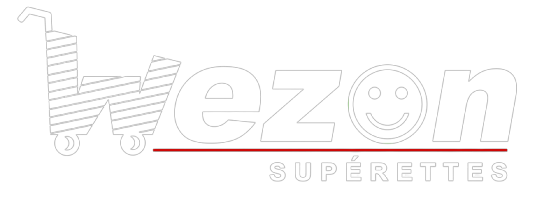States including Tennessee and Wyoming have begun designating DAOs as entities having legal status. Investment firm Andreessen Horowitz developed a guide to the benefits and limitations of various DAO legal structures. Daoism, Mohism, and Confucianism were created in response to widespread social unrest, conflict, and suffering. https://cryptolisting.org/ Daoism’s approach is unlike either Mohism or Confucianism in important respects. Daoists reject traditional morality because it promotes a way of life that supports acting against the natural way or against the flow of nature. They therefore reject the Mohist and Confucian affirmation of traditional moral norms.
Philanthropy DAOs
Starting an organization with someone that involves funding and money requires a lot of trust in the people you’re working with. But it’s hard to trust someone you’ve only ever interacted with on the internet. With DAOs you don’t need to trust anyone else in the group, just the DAO’s code, which is 100% transparent and verifiable by anyone. Members submit concise proposals relating to the DAO’s goals, including the action, team, budget, timeline, expected outcomes, and contingency plans. Following a discussion period and revisions, members vote on the proposals.
Reputation-based membership
The grand vision is that DAOs could make it easier to create decentralized organizations that respect the interests of stakeholders outside the control of any one party. They have been used to raise money for specific projects and form new kinds of business structures. They can also automate what is the formula for fixed asset turnover ratio many financial processes on blockchain platforms like Ethereum to ensure that stakeholders are compensated according to rules that everyone agrees to. They are also good at automatically facilitating shared votes based on a particular level of investment, support or engagement.
- Nevertheless, it will be important for DAOs to continue to create onboarding opportunities for people who can’t afford to acquire tokens.
- DAOs replace traditional centralized management systems—think boards of directors, legal frameworks, financial intermediaries, and other “people-centric” decision-makers—with smart contracts that live on blockchains.
- DAOs often have treasuries that house tokens that can be issued in exchange for fiat.
- And the DAO organization itself must be incorporated to support the desired legal, business and tax structure independent of the actual code.
- Instead, Daoism affirms simplicity, the elimination of desires and greed, and naturalness.
- Daoism’s naturalistic philosophy is supported by its metaphysical claims.
The human and kingly ways
They cannot be forcibly shut down by anyone, including government or regulatory bodies. Even the DAO’s creators cannot shut it down without the community of governance token holders approving the shutdown through a vote. Nobody can impose their will onto a DAO regardless of their position or authority. These smart contracts establish every rule; they track every action and transaction for the organization.
DAO membership
Now, just as any other human organization where almost anyone in the world can join, DAOs are often made up of people from myriad backgrounds. A DAO does not require users to provide any KYC-related information, which essentially means the DAO members can truly remain anonymous and still continue to contribute to the organization. Think of the DAO as an experimental venture that aims to take the idea of the organization to an ultra-heightened level.
Each DAO member’s voting power is proportional to the amount of the DAO’s native token they own. Once the business is running, participants may at least feel good about helping to buy some rare thing or support the legal effort for a cause they believe in. But it’s also possible for a DAO to both positively impact the world and earn returns that get converted into the core cryptocurrency underpinning the token. In this case, participants would either see an appreciation in the token’s value or realize some payment in the token itself or a disbursement via Ether or another cryptocurrency.
Daoists believe social norms and practices won’t solve our problems, because they promote a way of life that is unnatural. Instead, Daoism affirms simplicity, the elimination of desires and greed, and naturalness. Daoists believe we need to look beyond social life, beyond traditional human constructs, and instead find harmony with the natural way, the dao. The Daoist way of living in the world is one that values being receptive to the natural flow and movements of life.
Their programmable utility and general low maintenance creates limitless potential as communal counterparts to entrepreneurial pursuits. They allow for global collaboration and coordination in funding unique opportunities, pooling resources and ideas for enterprising Web3 projects, while garnering ownership via participation. These self-governing, peer-to-peer communities create trustless environments for safe collaboration, actively rallying around a purpose-driven cause. Above all, DAOs are the gateway to a more democratized internet, on target to restoring ownership to individual citizens online. Crypto buffs are starting to experiment with “social DAOs,” which are a kind of community-owned social club that you have to pay (in the form of buying tokens) to join. Because there aren’t a lot of DAO success stories yet, and most of the benefits are still unproven.
Typically used for more closer-knit, human-centric organizations like charities, worker collectives, and investment clubs. This is possible because smart contracts are tamper-proof once they go live on Ethereum. You can’t just edit the code (the DAOs rules) without people noticing because everything is public. This native token represents voting power and ownership proportion across members.
In 1977, Wyoming invented the LLC, which protects entrepreneurs and limits their liability. More recently, they pioneered the DAO law that establishes legal status for DAOs. Currently Wyoming, Vermont, and the Virgin Islands have DAO laws in some form. In many DAOs, transactions will be automatically executed if a quorum of members votes affirmative. States like Wyoming, Tennessee, and Utah recognize DAOs and provide an option for DAOs to register as LLCs (limited liability companies).
Willy Ogorzaly, member of ShapeShift DAO and Giveth DAO, has accumulated 7.5 years in the Web3 space. Currently, he helps projects launch DAOs and advises organizations during their structural remodel into decentralized autonomy. We don’t really know how the DAO model would work if applied to a regular, noncrypto business. And, in some cases, a DAO might be better off using a platform like Kickstarter, because using crypto to raise large amounts of money can result in users paying exorbitant transaction fees. When ConstitutionDAO raised $47 million, for example, its users paid roughly $1.2 million in fees to the Ethereum network. Once they were purchased, these works became the property of the DAO’s members, who can manage them as they see fit.


